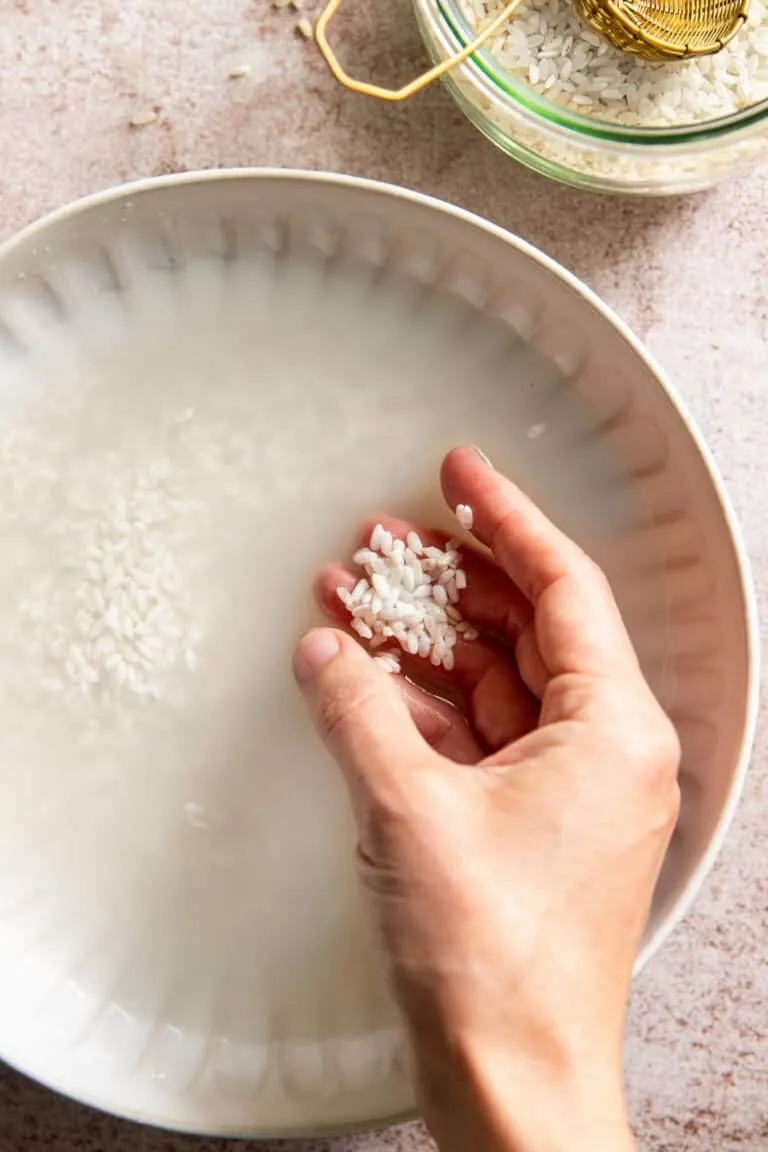What is Rice Water
Rice water is the starchy water left over after you’ve cooked or soaked rice. It’s a traditional beauty treatment used for centuries in Asian cultures, particularly in Japan, Korea, and China. This simple, yet effective, beauty secret has gained popularity worldwide due to its purported benefits for skin and hair. The water is packed with vitamins, minerals, and antioxidants that are believed to promote healthy, radiant skin. Unlike harsh chemicals or expensive treatments, rice water provides a gentle, natural approach to skincare. Its simplicity and accessibility make it an appealing option for those seeking a cost-effective way to improve their complexion. Understanding the origins and composition of rice water is the first step towards appreciating its potential benefits.
The Benefits of Rice Water for Skin Whitening
Rice water is celebrated for its potential to whiten and brighten skin. The key lies in its components, which work synergistically to deliver noticeable results. One of the primary benefits is the reduction of melanin production, which is responsible for skin pigmentation. This helps to fade dark spots, acne scars, and uneven skin tone, leading to a more luminous complexion. Furthermore, the antioxidants present in rice water combat free radicals, which can cause premature aging and dullness. By neutralizing these damaging molecules, rice water can help to restore the skin’s natural radiance. The benefits extend beyond mere whitening, as it also contributes to overall skin health, leaving it feeling refreshed and revitalized. Regular use can result in a visibly lighter, more even, and glowing skin appearance.
How Rice Water Works for Skin
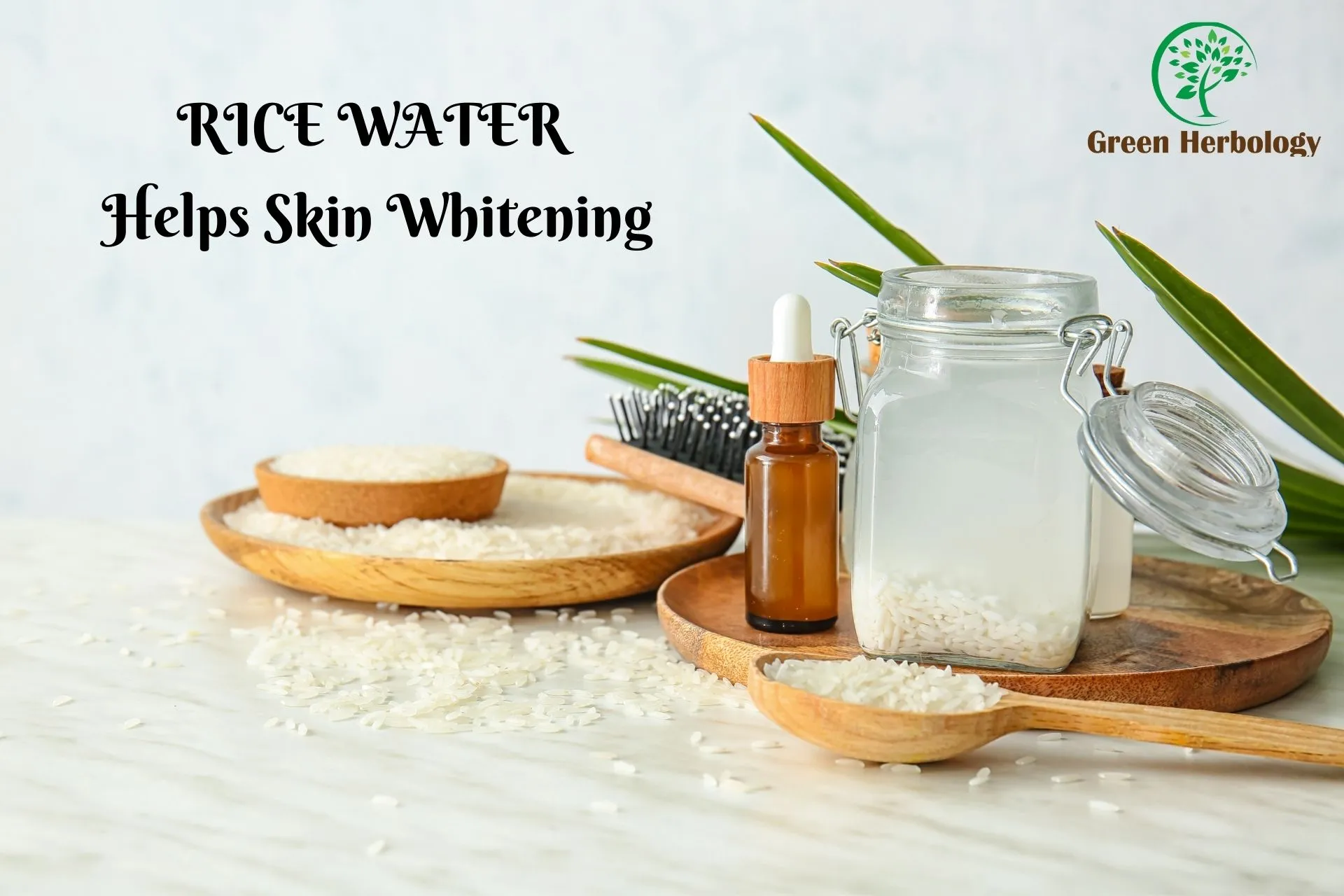
The magic of rice water lies in its rich composition. It’s a powerhouse of beneficial compounds that contribute to its skin-whitening properties. One of the most notable components is inositol, a carbohydrate that is known to promote cell growth and slow down the aging process. This helps to maintain the skin’s elasticity and reduce the appearance of fine lines and wrinkles. The vitamins and minerals present in rice water provide nourishment to the skin, supporting its natural functions and promoting a healthy glow. It also contains ferulic acid, an antioxidant that helps to protect the skin from environmental damage and further aids in skin whitening. By penetrating the skin and delivering these essential nutrients, rice water works at a cellular level to improve skin tone and texture.
Methods for Preparing Rice Water
There are several methods to prepare rice water, each offering slightly different benefits. The choice depends on your preference and the time you have available. The two most common methods are simple rice water and fermented rice water. Simple rice water is the quickest method, while fermented rice water requires some extra time to prepare but offers potentially enhanced benefits due to increased nutrient concentration. The best method for you depends on your skin type and the results you are hoping to achieve. Proper preparation is essential to ensure you get the most out of this natural skincare remedy. No matter the method you choose, the key is to use high-quality rice and clean water.
Simple Rice Water Recipe
The simple rice water recipe is straightforward and requires minimal effort. Start with one cup of uncooked rice (preferably organic) and thoroughly rinse it to remove any impurities. Place the rinsed rice in a bowl and add two to three cups of water. Gently massage the rice in the water for about 2-3 minutes, allowing the nutrients to seep out. Strain the rice water into a clean container, discarding the rice grains. The resulting milky liquid is ready to use. For best results, use this fresh, simple rice water immediately. This method is perfect for those looking for a quick and easy solution to incorporate into their skincare routine, providing a gentle and refreshing experience. The simple approach is ideal for daily use.
Fermented Rice Water Recipe
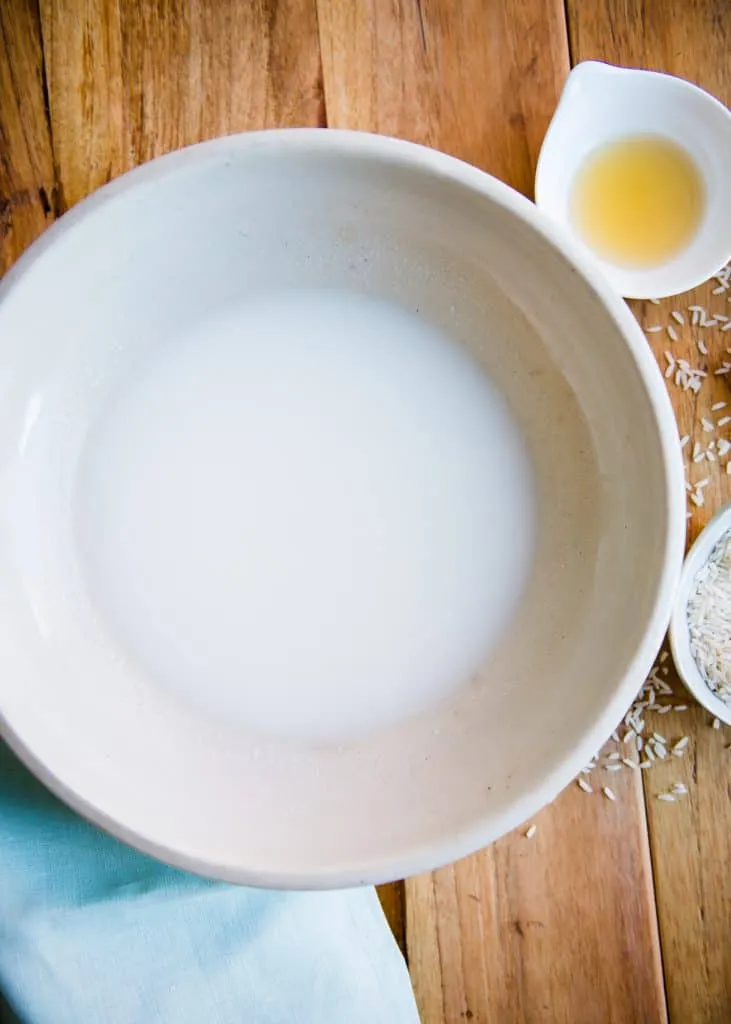
Fermented rice water involves a slightly different process that enhances its potency. Follow the initial steps of the simple rice water recipe: rinse one cup of rice and combine it with water. After massaging the rice in the water, let the mixture sit at room temperature for 12-24 hours, allowing it to ferment. You’ll notice a slightly sour smell, which indicates that the fermentation process is underway. Once the fermentation is complete, strain the rice water into a clean container. Dilute the fermented rice water with regular water before use, typically in a 1:1 or 1:2 ratio, to reduce the concentration. This method is believed to increase the antioxidant levels and provide additional benefits. However, it is crucial to be careful and pay attention to any changes in your skin after using it.
How to Use Rice Water on Your Skin
Incorporating rice water into your skincare routine is simple and adaptable. There are several ways to use rice water to maximize its benefits. It can be used as a facial cleanser, a toner, or even a face mask. The key is to use it consistently to see results. Always start with a patch test on a small area of your skin to check for any adverse reactions. Once you’ve confirmed that it is safe for your skin, you can start applying it to your face. Ensure that your skin is clean and free of makeup before applying rice water. Regular use can significantly improve your skin’s texture and tone, leading to a brighter and more even complexion. Consistency is key to achieving desired results. Remember to store rice water properly and observe your skin’s response to avoid any potential issues.
Using Rice Water as a Facial Cleanser
As a cleanser, rice water gently removes impurities, dirt, and oil from your skin without stripping it of its natural moisture. After rinsing your face with lukewarm water, apply rice water using a cotton pad or your fingertips. Gently massage it onto your skin in circular motions, focusing on areas prone to oiliness or blemishes. Rinse your face thoroughly with water after a few minutes. Using rice water as a cleanser can provide a refreshing and soothing experience, leaving your skin feeling clean, soft, and revitalized. This gentle approach is suitable for most skin types and can be incorporated into both your morning and evening routines. Using rice water as a cleanser is a simple and effective way to harness its skin-whitening properties.
Using Rice Water as a Toner
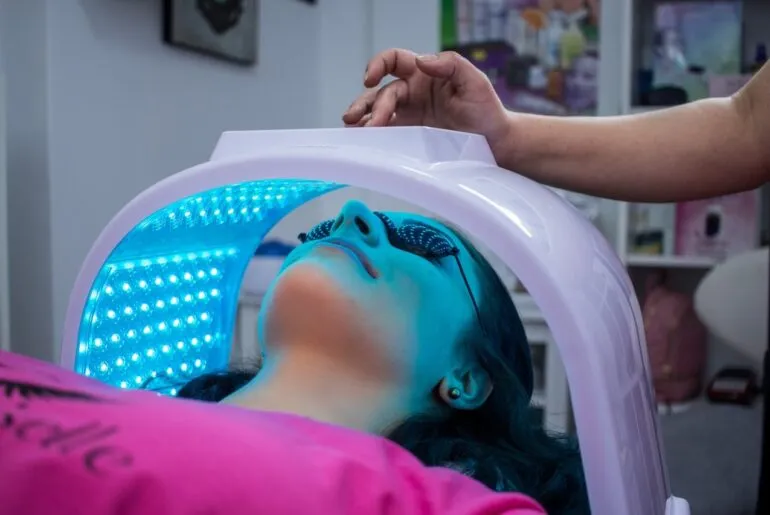
Rice water also works wonders as a toner. After cleansing your face, apply rice water with a cotton pad, gently patting it onto your skin. Toner helps to balance your skin’s pH levels, tighten pores, and prepare your skin for further treatments. It’s especially beneficial for those with oily or acne-prone skin, as it can help to control excess oil production. Let the rice water sit on your skin for a few minutes before applying your regular moisturizer. By using rice water as a toner, you can enhance the effectiveness of other skincare products. It creates a smoother base for makeup application. Regular use of rice water as a toner will help maintain a healthy and radiant complexion.
Using Rice Water as a Face Mask
For an intensive treatment, use rice water as a face mask. Soak a clean cloth or cotton pads in rice water and apply it to your face, ensuring that it covers all areas. Leave the mask on for 15-20 minutes, allowing the nutrients to deeply penetrate your skin. You can also add other beneficial ingredients to enhance the effects, such as honey or lemon juice (more details in the sections below). Once the time is up, rinse your face with water and pat it dry. Using rice water as a face mask provides a concentrated dose of antioxidants and vitamins, offering an instant boost to your skin’s hydration and brightness. This is an ideal option for those seeking a more intensive skin-whitening treatment. For optimal results, use the mask at least once or twice a week.
Important Considerations and Precautions
While rice water is generally safe for most people, some precautions and considerations are important to keep in mind. Always perform a patch test before applying rice water to your entire face. Apply a small amount to a discreet area, such as your inner arm, and wait for 24 hours to see if any irritation or allergic reaction occurs. Discontinue use if you experience redness, itching, or any other adverse effects. Make sure to use fresh rice water. Stored rice water can easily breed bacteria, so it’s best to use it immediately or store it properly in the refrigerator for no more than 3-4 days. Avoid getting rice water into your eyes, as it can cause irritation. If any contact occurs, rinse your eyes thoroughly with water. Be mindful of the fermentation process, which can lead to a stronger product and the potential for adverse effects.
Potential Side Effects of Rice Water

Though rice water is generally considered safe, some people may experience side effects. These are usually mild and temporary, but it’s important to be aware of them. The most common side effects include mild skin irritation, such as redness or itching, particularly if you have sensitive skin. Excessive use or overexposure to fermented rice water could lead to a burning sensation. If you notice any adverse reactions, stop using rice water immediately. Ensure that you’re not allergic to rice or any other ingredients used in the preparation process. Always start with a small amount to test your skin’s reaction. If symptoms persist or worsen, consult a dermatologist.
Who Should Avoid Rice Water
Not everyone is suitable for rice water treatments. If you have specific skin conditions, it is important to consult a dermatologist before use. Those with very sensitive skin may experience irritation and should exercise extra caution. People with active skin infections or open wounds should avoid applying rice water, as it could exacerbate their condition. Also, if you are allergic to rice or any of its components, you should not use rice water. Always pay attention to how your skin reacts. If you are unsure, it is best to consult a medical professional. Pregnant or breastfeeding women should also consult with their doctor before incorporating rice water into their skincare routine.
Combining Rice Water with Other Ingredients
To boost the skin-whitening and overall skincare benefits, consider combining rice water with other natural ingredients. This can enhance its effectiveness and address various skin concerns. When mixing ingredients, always conduct a patch test to ensure there are no adverse reactions. Combining rice water with other ingredients lets you tailor your skincare regimen and create customized solutions that best suit your needs. By carefully selecting the ingredients and their proportions, you can create potent blends that complement and amplify the natural properties of rice water.
Rice Water with Honey for Skin Whitening

Honey is a natural humectant and antibacterial agent. Combining rice water with honey creates a powerful skin-whitening mask. Mix 1-2 tablespoons of rice water with 1 teaspoon of raw honey. Apply this mixture to your face and leave it on for 15-20 minutes. Rinse with lukewarm water and pat dry. Honey helps to moisturize and soothe the skin, reducing inflammation and promoting a healthy glow. It also adds antibacterial benefits, preventing breakouts and improving skin texture. This combination is particularly effective for those with dry or sensitive skin. The synergy of rice water and honey helps to hydrate and brighten your complexion.
Rice Water with Lemon Juice for Skin Whitening
Lemon juice is a natural bleaching agent that can enhance the skin-whitening properties of rice water. Mix 1-2 tablespoons of rice water with 1/2 teaspoon of fresh lemon juice. Apply this mixture to your face and leave it on for 10-15 minutes. Rinse with water and pat dry. Always perform a patch test first, as lemon juice can be irritating to some skin types. Lemon juice’s citric acid helps to exfoliate and brighten the skin, reducing dark spots and uneven skin tone. This combination is best suited for those with oily skin. However, it’s essential to use this blend cautiously, as lemon juice can increase sun sensitivity. Use sunscreen when going outside. The mix helps to achieve brighter, more radiant skin.
Maintaining Your Skin Whitening Results
To sustain the skin-whitening benefits of rice water, consistent skincare practices are essential. Regular use of rice water, combined with a healthy lifestyle, is key to maintaining a bright, even complexion. You should create a skincare routine that incorporates rice water and complements its effects. Besides rice water, you should incorporate a good moisturizer, a gentle cleanser, and a broad-spectrum sunscreen into your daily regimen. Make sure to protect your skin from the sun’s harmful rays, which can reverse the effects of skin whitening treatments. This requires a holistic approach that incorporates both internal and external care.
Tips for Long-Term Skin Whitening
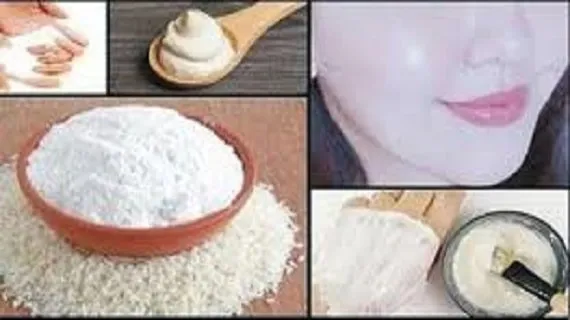
For long-term skin whitening, certain lifestyle changes and skincare habits are essential. Drink plenty of water and maintain a balanced diet rich in fruits and vegetables. These can provide your skin with vital nutrients and antioxidants. Avoid smoking and excessive alcohol consumption, which can damage your skin and slow down the skin-whitening process. Always protect your skin from the sun, wearing sunscreen, protective clothing, and seeking shade when necessary. Be patient and consistent. Remember that skin whitening takes time. Celebrate your progress along the way. Embrace the natural approach and enjoy the journey toward achieving radiant, healthy skin. Consistency, patience, and a commitment to healthy habits will help you achieve lasting results.
